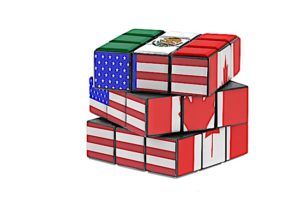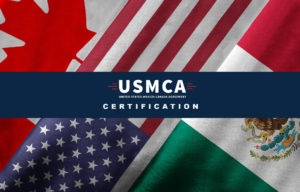News & Insights
The Disruptive Technology Strike Force
The U.S. Justice and Commerce Departments Announce Their New Export and Sanctions Enforcement Initiative: The Disruptive Technology Strike Force
On February 16, 2023, the Department of Justice (“DOJ”) and the Commerce Department (“DOC”) issued a joint press release announcing the launch of the new Disruptive Technology Strike Force (“DIS-TECH Strike Force”). It will be led by the DOJ’s National Security Division and the DOC’s Bureau of Industry and Security (“BIS”), will consist of federal prosecutors, the FBI and Homeland Security Investigations (“HSI”), and will operate in U.S. Attorneys’ offices in Atlanta, Boston, Chicago, Dallas, Houston, Los Angeles, Miami, New York City, San Jose, Phoenix, Portland, Oregon and Washington, D.C. As described in the press release, the mission of the DIS-TECH Strike Force will be to:
- Protect critical technologies from being acquired or used by nation-state adversaries such as China, Russia, Iran, and North Korea;
- Investigate and prosecute criminal violations of the U.S. export laws and regulations;
- Enhance administrative enforcement of U.S. export laws and regulations;
- Foster partnerships with the private sector;
- Coordinate law enforcement action and disruption strategies with international partners.
- Utilize advanced data analytics and all-source intelligence tools to develop and build investigations; and,
- Conduct regular trainings for field offices and strengthen connectivity with the Intelligence Community.
DIS-TECH Strike Force investigations will specifically target violations of the Export Administration Regulations (“EAR”), International Traffic in Arms Regulations (“ITAR”), U.S. embargoes and economic sanctions programs enforced by the Treasury Department’s Office of Foreign Assets Control (“OFAC”), and their underlying statutes. U.S. Deputy Attorney General Lisa Monaco described the objective of the DIS-TECH Strike Force in remarks she delivered on February 16th in London as follows: “Our goal is simple but essential—to strike back against adversaries trying to siphon our best technology.”
The targeted technologies were identified in the DOC’s Press Release issued a day later on February 17th and include:
- Supercomputing and exascale computing technologies;
- Artificial intelligence;
- Advanced manufacturing equipment and materials;
- Quantum computing; and,
- Biosciences.
These technologies are likely to be sought by China, Russia, Iran and North Korea to “enhance their military capabilities or support mass surveillance programs that enable human rights abuses.” All of these technologies have commercial and dual-use applications; however, they may threaten U.S. national security if acquired and used by adversary nations.
What does this mean for U.S. companies and academic institutions?
- The U.S. Government continues to step up its export and sanctions enforcement efforts, especially in the high-tech areas described above, and will work closely with various U.S. agencies, international partners and private sector stakeholders to flush out civil and criminal violations.
- U.S. companies and universities, especially those involved in the above-referenced technologies, should take steps now to assess their current export and sanctions compliance programs, verify that these programs address all of the core elements of compliance, and confirm that documented policies and procedures are in place and are up-to-date. Effective and robust compliance programs not only enable companies to prevent violations from occurring, but they also enable them to more readily discover potential compliance issues early on so that they may be promptly remedied.
- Companies and academic institutions that are not involved in the specific technologies identified above, should also take note of the U.S. Government’s intent to increase its export and sanctions enforcement efforts. They should understand the specific export and sanctions laws and regulations that apply to their products and technologies, and implement formal compliance programs tailored to their specific activities and operations.
- Export and sanctions compliance programs should address all of the elements outlined in the various guidance documents published by U.S. federal government agencies (e.g., BIS, Directorate of Defense Trade Controls, OFAC, Census Bureau, Customs and Border Protection, etc.), such as—
- Senior management’s commitment to compliance and its allocation of sufficient resources and support to the organizations’ compliance leads;
- Regular export and sanctions compliance training for personnel
- Commodity jurisdiction determination, classification, and licensing of the specific commodities, software and technologies that companies and academic institutions receive, use, develop, manufacture, export, transfer, etc.;
- Restricted parties list screening of job candidates, contractors, suppliers, distributors, resellers, agents, customers, end-users and all parties to transactions involving transfers of controlled goods, software and technologies—antibribery/anti-corruption screening should be performed on the foregoing, as well;
- Embargoed and sanctioned country screening;
- End-use screening of controlled goods, software and technologies;
- Screening of transactions for potential risks of diversion (“red flags”);
- Measures designed to prevent the release of controlled software and technologies to unauthorized foreign national employees in the United States;
- Effective physical security and IT security protocols to prevent unauthorized releases or transfers of controlled software or technologies;
- Retention of records and supporting documentation required by regulation and statute;
- Performance of regular risk assessments and internal audits; and,
- Issue escalation protocols for identifying potential compliance issues and violations and taking the necessary corrective action.
- Effective compliance programs, as well as regular training of personnel, should also address the internal processes established for handling: (a) unannounced visits by, or meeting requests from, U.S. federal agents; (b) document/information requests or administrative subpoenas issued by the U.S. Government; and, (c) and search warrants.
- Companies and academic institutions engaged in the advanced technologies outlined above should anticipate increased scrutiny of their activities by the U.S. Government, which may include: (a) unannounced visits and other outreach efforts by federal agents to discuss their respective technologies, activities, operations and industries; (b) requests for meetings with organizational leaders; and, (c) requests for information and documentation. In criminal investigations, the DIS-TECH Strike Force agents and federal prosecutors can also issue subpoenas and execute search warrants, among other tactics.
- Violations of the EAR, ITAR and U.S. embargoes and economic sanctions programs are strict liability offenses, and can lead to the imposition of severe civil penalties, negative publicity for individuals and organizations, the denial of export privileges, exclusion from U.S. Government procurement activities, and seizures and forfeitures. Violations that are willful or intentional will be subject to criminal prosecution, leading to severe criminal fines for individuals and their organizations, as well as a maximum of 20 years’ imprisonment for individual violators.
The existence of an export and sanctions compliance program implemented in accordance with the U.S. agencies’ published guidance will generally be viewed as an important mitigating factor during a formal investigation. Experienced international trade compliance counsel can assist companies and academic institutions in evaluating their current compliance programs, performing internal audits under the protection of the attorney-client privilege, and providing guidance in the design and implementation of sound compliance policies and procedures.
Please contact Melissa Proctor (melissa@millerproctorlaw.com) should you have any questions about the new DIS-TECH Strike Force, implementing effective export and sanctions compliance programs, and/or other international trade issues.


